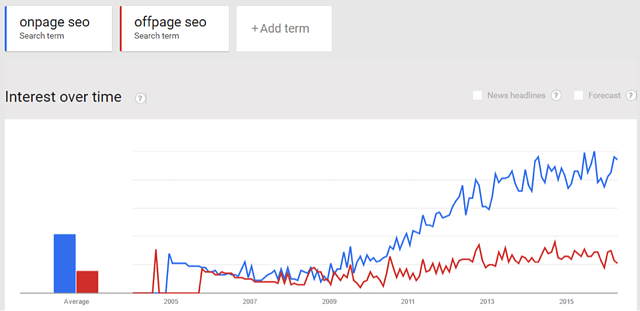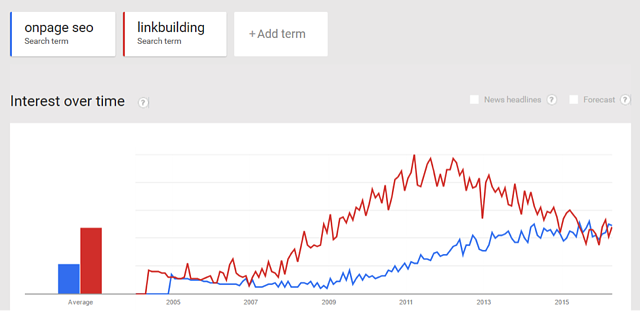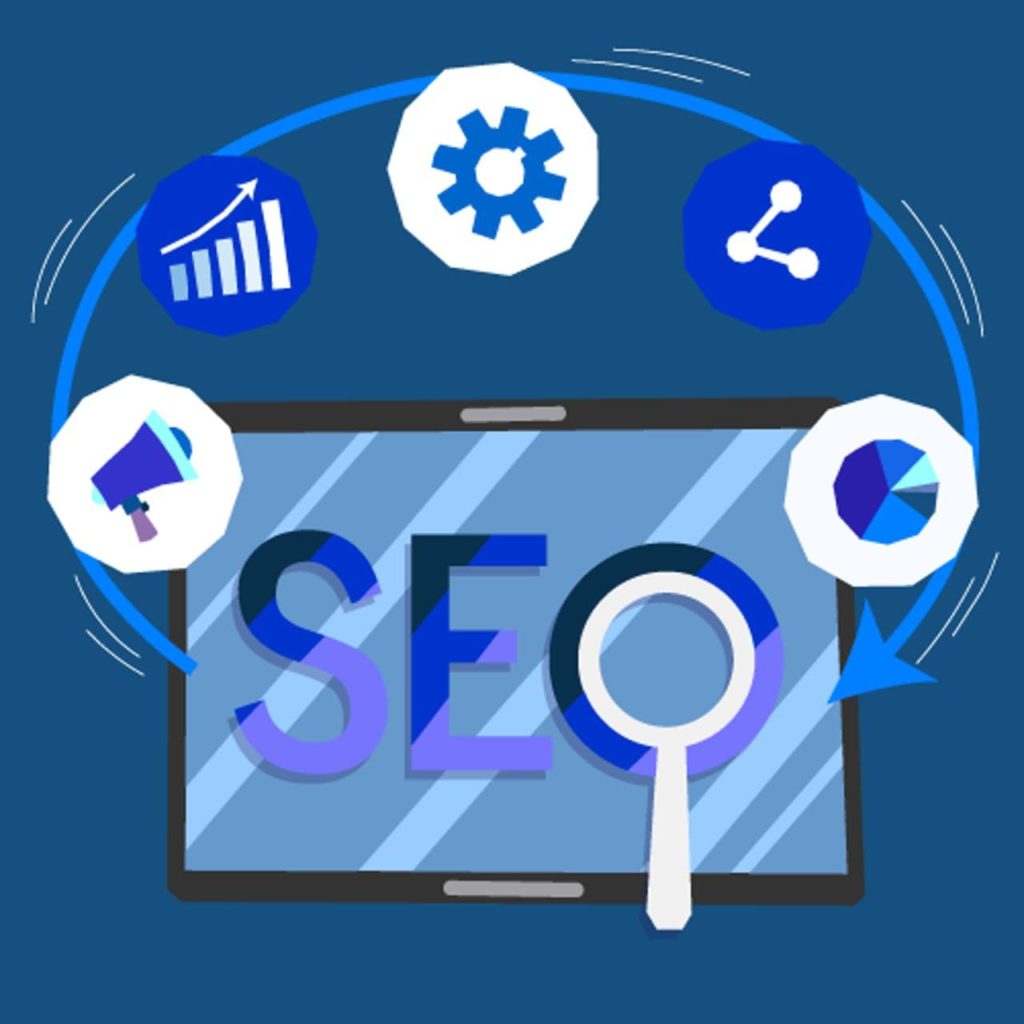
On-Page SEO vs Off-Page SEO
Let’s face it, SEO has become a frequently used buzzword that gets thrown around left, right and center.
In fact, if we take a quick look at the Google Trends data, we can see that the Internet has certainly had some mixed understandings of what SEO actually is.
“SEO” vs “Search Engine Optimization”
SEO
Take for example, the chart that shows frequency of searches for the term SEO:

We can see that searches for the term SEO steadily rose from 2005 until it hit a plateau in 2009 and then remained somewhat constant.
Search Engine Optimization
If we check the interest over time for the search phrase “search engine optimization” we see almost the opposite results:

This could simply be due to the fact that the acronym by that stage is reasonably well known, or it could be that people have slowly stopped being aware that SEO stands for Search Engine Optimization.
One graph we can constantly see growing, is the one in which we measure interest over time for the phrase “what is seo?”

So far, we can see that SEO as a concept, or keyword in and of itself, really hit its stride in 2009. That is to say that more and more people were looking it up and trying to understand what it is.
Another interesting development started to occur in 2009 also.
We started to see more and more users searching for either “onpage seo” or “offpafe seo”.
If you have never heard these terms before, do not worry. I will make sure that you have at least a rudimentary understanding of each by the end of this article.

The quickest and simplest way to explain the difference between On-Page SEO and Off-Page SEO, is:
On-Page SEO is a series of best practices for setting up your own website; whilst Off-Page SEO is a series of best practices that you can do to help your website rank better without actually changing your own website.
On the one hand, there is a list of things you should look into that will help you alter, change, and optimize your own website to perform better in Google.
On the other hand, there is a list of things that you can do on other websites that will help your website rank higher on Google.
On-Page factors are things like ensuring smooth coding structure of your pages, having keywords used appropriately, updating meta tags and so on.
Off-Page factors are things like social media references, links coming from other websites, and mentions of your website on other sites.
Note: you would be forgiven if you looked at the above graph depicting interest in Off-Page SEO vs. On-Page SEO and thought that On-Page SEO was more popular.
The reality is, that if you switch the term Off-Page SEO to “Linkbuilding,” the results are significantly different.

It just so happens, that the most popular form of Off-Page SEO has been (and realistically always will be) Linkbuilding.
Why Do We Even Have the Differentiation in Terms?
As a means of showing what types of services are actually being provided
In a simple world, you would have service providers that advertise a service and then complete the service. They would ensure that they have covered all bases and that they have not skipped any steps.

In a more realistic world, you find that when you are dealing with an industry that is roughly 25 years old, some of the benchmarks and standards have not been completely set out just yet.
You may encounter service providers who are selling SEO services, yet will only be optimizing your website. This is frequently the type of SEO that you may expect a web designer to offer.
When you encounter a service provider who shows that they take into account On-Page as well as Off-Page factors, they are letting you know that they are treating your SEO as a holistic process.
By splitting the term into two composite parts, it becomes easier to communicate with a potential client as to what exactly the provider is going to do.
As a means of splitting up and managing a work flow
When it comes time for an SEO provider to commence work, being able to split the service into actionable components assists with assessing needs, allocating tasks, and then following through with the work that needs to be completed.
Additionally there are times when an SEO provider is not the direct content creator for the website that they are trying to rank. In situations like this, the On-Page work consists of an audit, a series of tasks to get the site optimized and then a provision of guidelines for any new content that is being published.
For example, once the site has its On-Page factors completely caught up, the SEO provider will often make sure that whoever is providing the content updates understands their responsibility with ongoing optimization. The SEO provider in this situation outlines a series of small tasks that must accompany a blog post update, such as creating appropriate title tags, meta descriptions, using appropriate H1 and H2 tags and so on.
For these ongoing tasks, it is more efficient for the content publisher to optimize as they go, than it is to have the SEO provider come in later and optimize after the content has already been published.
As a means of specializing in one or the other
As is true for any industry, the SEO industry has both broad practitioners as well as technical experts in their chosen fields.
Having the division between On-Page and Off-Page SEO allows the practitioner to broadly advertise and market their specific specialization. In many instances, entire agencies are built around simply link building practices, just as there are entire agencies built around Off-Page penalty removal processes, local citation management and so on.
Key Points to Take Away From the Differences Between On-Page and Off-Page SEO
SEO is a young industry, with many practitioners and no defined standards of operation. Often a practitioner will not be entirely open about what their technique is in gaining traction within a search engine results page.
When you are assessing the offers from various professionals, you can at least ask them where they place their primary focus. Ask them if they primarily optimize on-page, or off-page. Ask them to give a rough ratio of their focus. Will they spend more time optimizing the On-Page factors, or do they focus primarily on Off-Page factors?
Having a clearer understanding of the industry, and some of its key terminologies will greatly assist you in assessing and deciding upon which professional you would like to work with.









